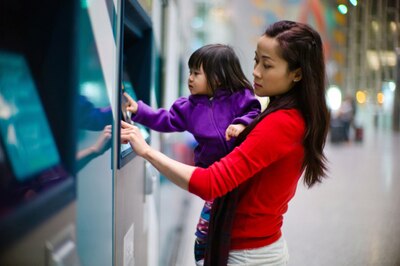PERSPECTIVES
Diverse Services for Diverse Immigrant Communities
August 25, 2014
At a conference in Washington D.C. last month, when the audience of U.S. federal and city officials, community organizations and business representatives started nodding in unison, I knew I had hit a nerve: Immigrants are not a homogeneous group, and it is critical that we develop multiple pathways to citizenship, an important asset for economic success in America.
From highly skilled workers to students, asylum seekers to entrepreneurs, different groups require different financial training, education and employment support. This approach will better help the 8.8 million legal permanent residents who have documents, pay taxes and work lawfully, and yet aren't citizens because of varied barriers.
It's a conversation often overlooked for its subtlety and complexity, but that Citi Community Development delved into at the event organized by the Chamber of Commerce, Welcoming America, Americas Society/Council of Americas and Partnership for a New American Economy, as well as discussed at a White House event the day before, to success and applause.
The audience was pleased that a financial institution is taking the lead.
Citi has undertaken research with the National Council of La Raza and the National Coalition for Asian Pacific American Community Development, among other organizations and municipalities, to support policy and program development. We have also worked with local community intermediaries, such as Casa de Maryland, that provide legal advice and micro loans to cover naturalization fees.
But we recognize that citizenship is a first step. College education, home ownership, entrepreneurship, workforce training and the recognition of foreign professional credentials to ensure that all citizens can participate fully in the economy and community to their capacities are critical. In addition, achieving a national identity must go hand-in-hand with establishing a healthy financial identity, which is important to securing a good job, a safe home, and a stable economic future - the American Dream.
Different immigrant groups are achieving these steps of financial integration at different levels, and that requires our attention.
In a research report sponsored by Citi Community Development and undertaken by the New York City Office of Financial Empowerment, we learned that nearly 95% of Chinese immigrants surveyed were banked after five years in the U.S., while 35% of Ecuadorian respondents and 57% of Mexican respondents were unbanked after living in the U.S. for 10 years or more. Bank account ownership is the first of many steps for immigrants to strengthen the financial security of their households.
Empowering immigrants to find pathways to strong national and financial identities matters to the economy and our business.
More than 20 million immigrants live in the 12 major urban areas where Citibank operates. Immigrants are also 30% more likely to start a business compared with U.S.-born counterparts, serving as catalysts for urban regeneration. Meanwhile, almost 30% of immigrants arrive to the U.S. with a bachelor's degree or higher, yet almost half work in jobs that don't match their specialized skills and training, according to the Brookings Institute. Naturalized citizens earn, on average, 45% more than non-citizen immigrants and the poverty rate among naturalized citizens is half the poverty rate among non-citizen immigrants, which is 20%, according to the Economic Policy Institute.
By continuing our efforts, Citi Community Development hopes to strengthen Citi's relationship with municipalities and bolster financial inclusion in underserved neighborhoods to America's diverse population of immigrants.
Sign up to receive the latest news from Citi.
Select Preferences
